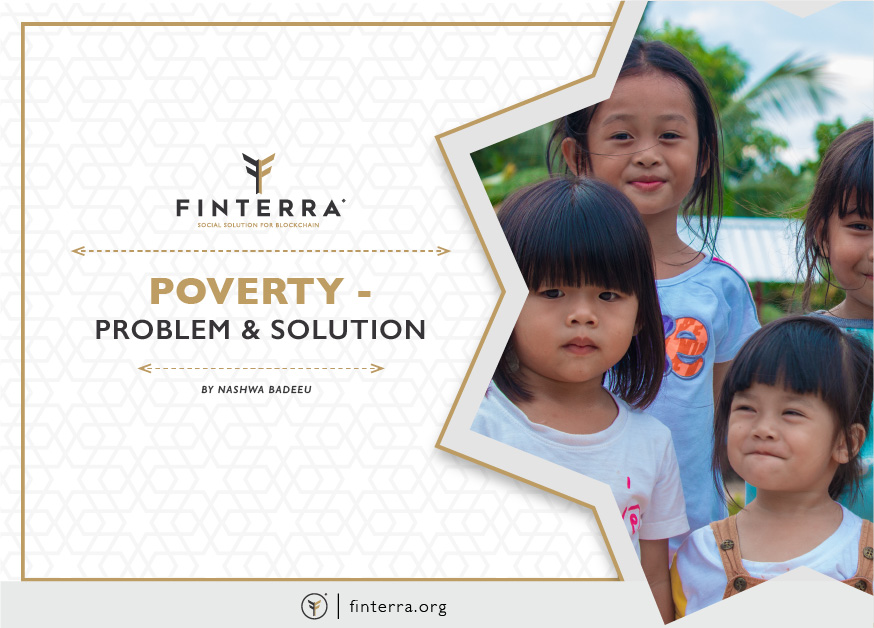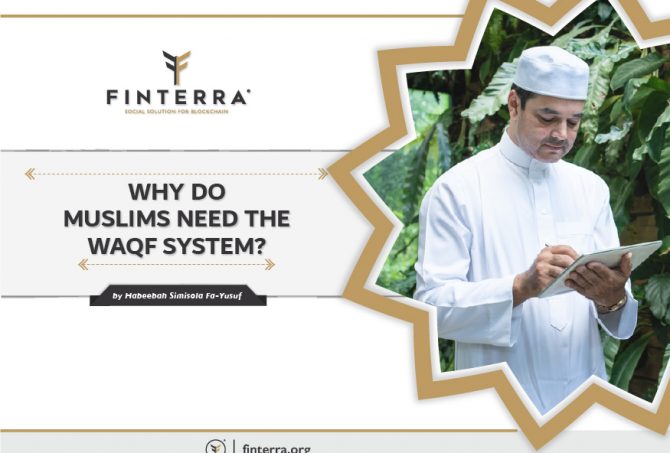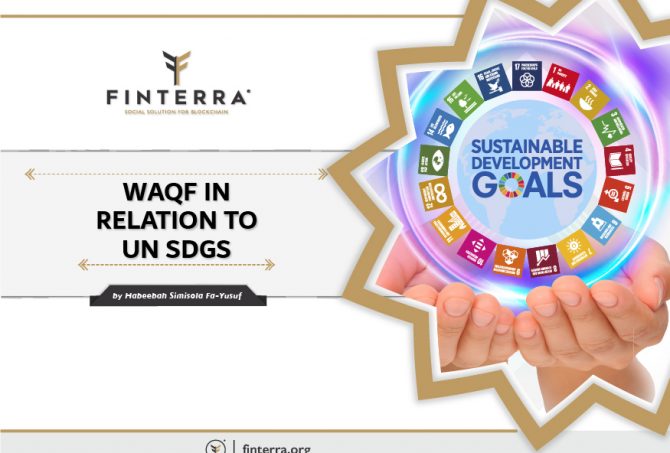Poverty – Problem & Solution
The current status of poverty in the global scale is alarming with latest statistics of United Nations Global Issues reporting that almost half the world live on less than $2.50 a day, 640 million people live without adequate shelter, 925 million people suffer from hunger, 400 million have no access to safe water, 270 million have no access to health services, 10.6 million died before they reached the age of 5 and 1 billion are illiterate [1]. And Muslim countries are not exceptional where poverty is widely spread, which manifests in starvation, malnutrition, diseases, illiteracy, imparity in income levels as well. Most of the countries in Organization of Islamic Cooperation (OIC) are generally poorer than other countries, with the majority of said poor population living in Africa and Asia. For instance, as many as 58.7 million people in Pakistan are living in multidimensional poverty while Bangladesh and Nigeria has a high poverty headcount ratio of 43% and 62% respectively [2].
It can be assumed that a main contributor to this is because Muslim countries has been forced follow the Capitalist System since the 19th century up to the first half of the 20th century. Thus, important socio-economic institutions such as institutions of Waqf, Zakat and Sadaqat has been overlooked or even replaced by secular institutions such as the tax system. However, it should be remembered that these institutions were once the pillars that ensured social justice, elimination of factors that lead to inequal distribution of wealth and offer means to help the poor and the needy in order to alleviate issues such as poverty from the society.
While Zakat and Sadaqah (Charity) offers temporary relief to societal issues through one-time donations, Waqf (plural: Awqaf) has been proven to be the most effective due to its perpetual, inalienable and immutable nature. And with the introduction of Cash Waqf, a more flexible mean has been introduced which allows communities to come together in order to contribute to Awqaf that can be routed to social campaigns that addresses community development, healthcare and other such causes that helps those in need to rise up from their state of poverty. Development of Waqf allows communities to establish perpetual means to generate income as well as develop assets such as buildings that can be utilized by communities for businesses, communal activities and more. This helps the poor from learning new skills and acquire opportunities in employment or education allowing them to contribute to the society and rise up from poverty as well.
The importance of establishing a strong Waqf institutions to generate income or to raise funds in order to address societal issue is slowly being recognized across the globe. And day by day, innovative measures are being adopted to develop Waqf even further. Some of these adoptions include Waqf Share Schemes, Corporate Waqf Schemes and even Waqf on Blockchain. One such innovation is the WAQF Chain platform that has been developed in order to offer a one-top platform for contributors and fund-seekers to come together in order to contribute to Waqf causes and develop Waqf assets. Built on Blockchain, this platform offers full transparency and traceability to the contributors, ensuring that their donations are utilized in the manner it was intended thus eliminating one of the biggest threats (i.e. lack of trust) that has plagued development of Waqf over the years. And whilst offering a feasible avenue for financing Waqf, WAQF Chain also offers highly positive prospect to utilize and develop Waqf in order to address one of the biggest issues across the globe; poverty.
[1] INCEIF KMC (2018, 13 September). World Bank-INCEIF-ISRA hold roundtable on maximizing social impact through Waqf solutions, online retrieved from https://www.inceif.org/kmimpact_development/2018/09/13/world-bank-inceif-isra-hold-roundtable-on-maximising-social-impact-through-waqf-solutions/
[2] Shaikh, S. A (2016). Zakat Collectible in OIC Countries for Poverty Alleviation: A Primer on Empirical Estimation. International Journal of Zakat 1(1). Pp 17-35. Retrieved from https://www.researchgate.net/publication/312316574_Zakat_Collectible_in_OIC_Countries_for_Poverty_Alleviation_A_Primer_on_Empirical_Estimation
It can be assumed that a main contributor to this is because Muslim countries has been forced follow the Capitalist System since the 19th century up to the first half of the 20th century. Thus, important socio-economic institutions such as institutions of Waqf, Zakat and Sadaqat has been overlooked or even replaced by secular institutions such as the tax system. However, it should be remembered that these institutions were once the pillars that ensured social justice, elimination of factors that lead to inequal distribution of wealth and offer means to help the poor and the needy in order to alleviate issues such as poverty from the society.
While Zakat and Sadaqah (Charity) offers temporary relief to societal issues through one-time donations, Waqf (plural: Awqaf) has been proven to be the most effective due to its perpetual, inalienable and immutable nature. And with the introduction of Cash Waqf, a more flexible mean has been introduced which allows communities to come together in order to contribute to Awqaf that can be routed to social campaigns that addresses community development, healthcare and other such causes that helps those in need to rise up from their state of poverty. Development of Waqf allows communities to establish perpetual means to generate income as well as develop assets such as buildings that can be utilized by communities for businesses, communal activities and more. This helps the poor from learning new skills and acquire opportunities in employment or education allowing them to contribute to the society and rise up from poverty as well.
The importance of establishing a strong Waqf institutions to generate income or to raise funds in order to address societal issue is slowly being recognized across the globe. And day by day, innovative measures are being adopted to develop Waqf even further. Some of these adoptions include Waqf Share Schemes, Corporate Waqf Schemes and even Waqf on Blockchain. One such innovation is the WAQF Chain platform that has been developed in order to offer a one-top platform for contributors and fund-seekers to come together in order to contribute to Waqf causes and develop Waqf assets. Built on Blockchain, this platform offers full transparency and traceability to the contributors, ensuring that their donations are utilized in the manner it was intended thus eliminating one of the biggest threats (i.e. lack of trust) that has plagued development of Waqf over the years. And whilst offering a feasible avenue for financing Waqf, WAQF Chain also offers highly positive prospect to utilize and develop Waqf in order to address one of the biggest issues across the globe; poverty.
[1] INCEIF KMC (2018, 13 September). World Bank-INCEIF-ISRA hold roundtable on maximizing social impact through Waqf solutions, online retrieved from https://www.inceif.org/kmimpact_development/2018/09/13/world-bank-inceif-isra-hold-roundtable-on-maximising-social-impact-through-waqf-solutions/
[2] Shaikh, S. A (2016). Zakat Collectible in OIC Countries for Poverty Alleviation: A Primer on Empirical Estimation. International Journal of Zakat 1(1). Pp 17-35. Retrieved from https://www.researchgate.net/publication/312316574_Zakat_Collectible_in_OIC_Countries_for_Poverty_Alleviation_A_Primer_on_Empirical_Estimation




